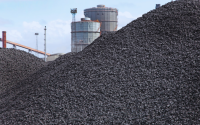7 July 2007The Independent
It's the biggest wake-up call the world has ever seen. But will it work?
When Live Earth, the unprecedented 24-hour global concert to raise awareness of climate change, sounds out its last note late tonight, will it have begun the vital breakthrough in terms of triggering action to save the planet?
That's certainly the intention behind the seven-continent, 100-act series of performances with a potential audience of 2 billion people - nearly a third of the world's population - which will be going on all through today in stadiums in great cities from London to New York, from Tokyo to Shanghai, from Johannesburg to Sydney and from Hamburg to Rio de Janeiro.
Many of the world's biggest music names will be giving their support to Live Earth's simple but audacious idea - to start a global popular movement that will force governments to take decisive action to combat global warming.
The guiding spirit is Al Gore, the former US vice-president who in the last five years has pursued a personal, international campaign to bring home the danger the Earth is facing from the overheating atmosphere. Mr Gore has had huge success in opening eyes to the threat with his film An Inconvenient Truth but now he is attempting an even bigger, and indeed quite extraordinary, consciousness-raising coup.
By joining forces with the music and media mogul Kevin Wall - one of the key figures behind 2005's Live 8, the concert committed to Making Poverty History - he is seeking to send out his message on a scale that has probably never been attempted before.
Live Earth is taking maximum advantage of the explosion of communications and information networks around the world, from TV and radio to the internet and text messaging, using what Mr Wall calls "an unprecedented media architecture" to reach what the organisers hope will be an unheard of number of people.
The point? To get them to promise support for action to combat climate change on the grand scale, and to commit to action in their own lives to cut back on the emissions of greenhouse gases which are causing the atmosphere to warm up.
Mr Gore and Mr Wall have drawn up a seven-point pledge at the heart of their programme, which today's audience is being asked to support. Its themes range from calling on governments of the industrialised countries to bring in a treaty within the next two years to cut carbon emissions by 90 per cent, to making a personal pledge to become "carbon neutral". It looks to the building of "a sustainable, just, and prosperous world for the 21st century".
You can be cynical if you like, with all those millionaire rock stars being the bearers of the message, but if you were drawing up a wish-list for actions to tackle the climate threat, this would be it, as near as dammit.
Then comes the really original bit. Previous grand charity concerts sought donations - Live Earth is seeking names. To support it, you text or email your name - and when it's all over, Al Gore and his fellow campaigners hope to have, not millions of dollars, but millions upon millions of names, all promising to act themselves to tackle global warming, and calling on their governments to act on their behalf.
This could have the makings of a remarkable popular mandate, both worldwide and national - the number of pledges in each country will be made available - which presidents and prime ministers will find hard to discount. There is no doubt that it is desperately needed, at two levels. Firstly, there is a logjam in global efforts to tackle the climate crisis. Secondly, many ordinary people do not see the threat of global warming as critical at all.
Can the step change be made, in attitudes and politics? Live Earth will certainly try. At the UK concert, in Wembley stadium, the British organising partners are The Climate Group, which brings together companies to address global warming, and I Count, the campaign of the Stop Climate Chaos coalition of green groups.
Ashok Sinha, the I Count director, said: "Live Earth is not just a great day for music. It's a springboard for action. We are the generation that could be remembered for fixing climate chaos, but we can only do it if we all stand up and be counted."
Major crises facing planet Earth
* ICE MELTS AND SEA RISES
Fears are growing that the great land-based ice sheets of Antarctica and particularly Greenland may break up and melt into the oceans much faster than was anticipated even five years ago, precipitating a world-wide sea level rise of several metres. That would be catastrophic for human society. A recent paper by America's leading climate scientist, James Hansen of Nasa, pointed out that when ice ages ended in the past, the crucial melting of great ice masses was very rapid, taking not thousands or even hundreds of years, but merely decades.
* DEFORESTATION
Cutting down forests (and, especially, burning them) is a major cause of the carbon emissions responsible for global warming. Indonesia, is now probably the world's third biggest CO2 emitter because of the vast deforestation (and associated fires) within its borders. Forests are normally a "sink" for CO2; but when cut down they become a source. However, predictions from models of climate change show that, as temperatures climb, forests will not need to be cut down to stop absorbing CO2; by the 2040s in the Amazon, for example, it may start to happen naturally.
* EXTREME WEATHER
A warming atmosphere will contain more water vapour and more energy, and the result is likely to be storms and other meteorological events of greater intensity. It will range from heavier rainfall over Britain - which we are already starting to see, consistently - to the possibility that hurricanes might be more frequent and more powerful over the Atlantic. The scientific jury is out as to whether or not the latter is already happening but there are strong suspicions that a storm such as the giant Hurricane Katrina may have owed its particular force to climate change.
* CROP FAILURES
In many parts of Africa, especially the dryland regions surrounding the Sahara such as the Sahel, agriculture that supports many millions is already marginal; with the sorts of temperature rises predicted for the coming century, it will be impossible. Africa's perennial hunger will be unimaginably worsened, and that situation may be repeated in other parts of the world. We even have, in Britain in 2007, what may be our first climate-related crop failure: much of the British pea harvest has been destroyed by the recent floods in Yorkshire and Lincolnshire.
* WILDLIFE LOSS
The natural world is likely to suffer severely as the warming climate takes hold on a spectrum ranging from insects, which may be able to adapt best, to plants, which will not be able to survive. Charismatic species such as the polar bear look doomed in the 21st century, as the Arctic sea ice, which it uses to hunt seals, melts away. We are already seeing climate-related wildlife loss in Britain: the ring ouzel, our "mountain blackbird", has disappeared from the hills of Shropshire and the West Country and higher temperatures are thought to be responsible.






